40 years on and bitter memories remain of 1980 Moscow Olympics
Bitter memories remain of 1980’s Olympic controversy on the 40th anniversary of the Moscow opening ceremony.
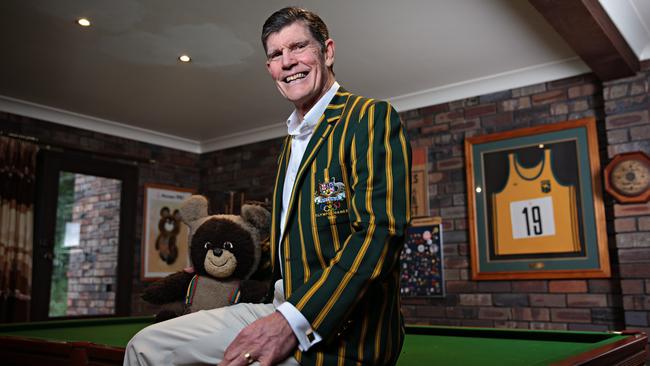
Former decathlete Peter Hadfield still remembers his fury at the pressure on Australian athletes not to go to the Olympics in Moscow 40 years ago by the Fraser government.
“I was incensed that the government was trying to prevent me and all the other athletes from competing at Moscow,” he told The Weekend Australian this week as he and a few friends plan to get together on Sunday to remember the 40-year anniversary of the 1980 opening ceremony.
“Like some other Moscow Olympians, I spoke at a number of rallies organised by the unions to drum up support so that the team could get permission to go to Moscow.”
Fraser was pressuring the Australian Olympic movement to join the US boycott of the Moscow Games as a protest against the Soviet invasion of Afghanistan in 1979.
US President Jimmy Carter was lobbying Australia to support the boycott ahead of a very difficult election in November 1980.
What was then the Australian Olympic Federation (AOF) decided by one vote to go to the Games – a decision which divided the country but has since allowed Australia to boast that it has sent a team to every modern Olympics.
“I felt that it was an unfair burden that the Fraser government was placing the entire onus of responsibility of their policy on Afghanistan on the shoulders of the athletes, while at the same time exports of wool, wheat and rutile to the Soviet Union were actually increasing,” Hadfield recalled this week.
“A few of my US athletic friends had commented at the time that the catalyst for the US boycott was simply to create a distraction for President Jimmy Carter to remove attention from the Iranian hostage crisis.
“It seemed to me at the time to be ridiculous for Australia to blindly follow the lead of the US for this reason. Afghanistan had been invaded by a series of countries for centuries prior to 1980.”
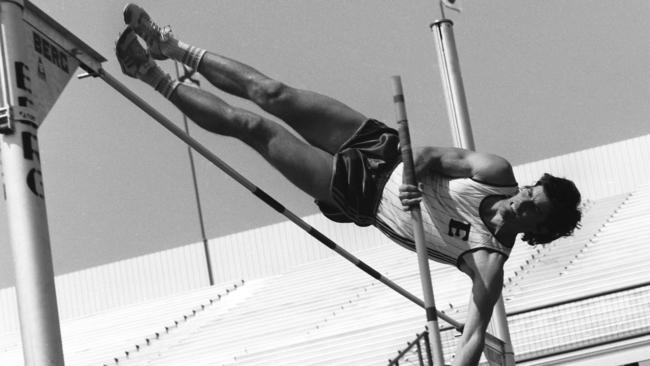
Hadfield had his own strong personal reasons for wanting to compete in Moscow.
He had won his first Australian decathlon championship in 1976 and broke the Australian record that year, but was disappointed not to be selected to go to the 1976 Montreal Olympics.
He had won silver at the Commonwealth Games in Edmonton, Canada, in 1978 behind Britain’s Daley Thompson.
“After missing out on Montreal there was no way I wasn’t going,” he said.
Hadfield says he felt “severely let down” by those members of the federation who voted against going to Moscow.
“I thank the six chefs de mission Phil Coles, Lewis Luxton, Tom Blue, John Rodda, Bill Hoffman and David McKenzie for supporting the athletes and electing to go,” he said.
But even after the Olympic Federation decided to go there was continued pressure on the Australian athletes not to, pressure which saw sprinter Raelene Boyle opt to withdraw from the Games, despite her strong chance of a medal.
Hadfield was offered $6000 by a Sydney businessman not to go to Moscow.
“It was a serious amount of cash, about half a year’s salary at the time,” he said. “But I dismissed him outright.” Hadfield refuses to name the man.
The pressure on the athletes and their families continued.
“No one directly said to me how selfish I was to want to go to Moscow, given the circumstances in Afghanistan, but my wife Marilyn was vilified mercilessly on my behalf,” Hadfield said. ”It was a relief to finally get to compete in Moscow.”
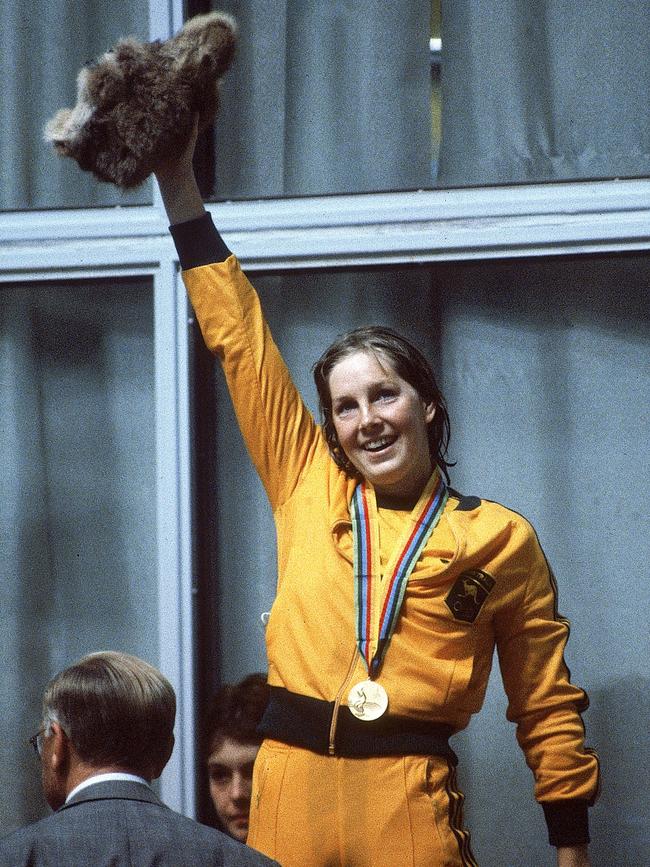
In the end 120 Australian athletes went to Moscow, 92 men and 28 women.
Australia won two gold medals — both in the pool — with swimmer Michelle Ford winning the women’s 800m freestyle and Neil Brooks, Mark Kerry, Peter Evans and Mark Tonelli winning the men’s 4x100m medley relay.
The Australian team also won two silver medals — Rick Mitchell in the 400m and John Sumegi in the K1 500m kayak singles, with swimmers Graeme Brewer, Max Metzker, Mark Kerry, Evans and Ford winning bronze medals.
Hadfield came 13th in the decathlon. “I didn’t perform as well as I had hoped,” he recalls.
“But I was delighted to be competing in my first Olympics and representing Australia.”
Hadfield still retains some bitterness that the Australian Olympic movement came so close to withdrawing from Moscow but is pleased Australia and Greece remain the only nations to attend every modern Games.
Mitchell has a different view of the Moscow Games.
After finishing sixth in the 400m in Montreal in 1976, he decided to give up fulltime work to have a shot at winning in Moscow.
He was disappointed when his friend Boyle confided to him that she would not be going to the Games, but he was determined he would go himself.
In an interview with The Weekend Australian from his home in Brisbane this week, Mitchell said he was not affected by the controversy leading up to the AOF vote.
“I figured there was nothing I could do to change the vote, I would focus on the things I could manage and could control.
“I didn’t like Malcolm Fraser much at the time but I wasn’t going to let anything get in the way of me running a tenth of a second faster.”
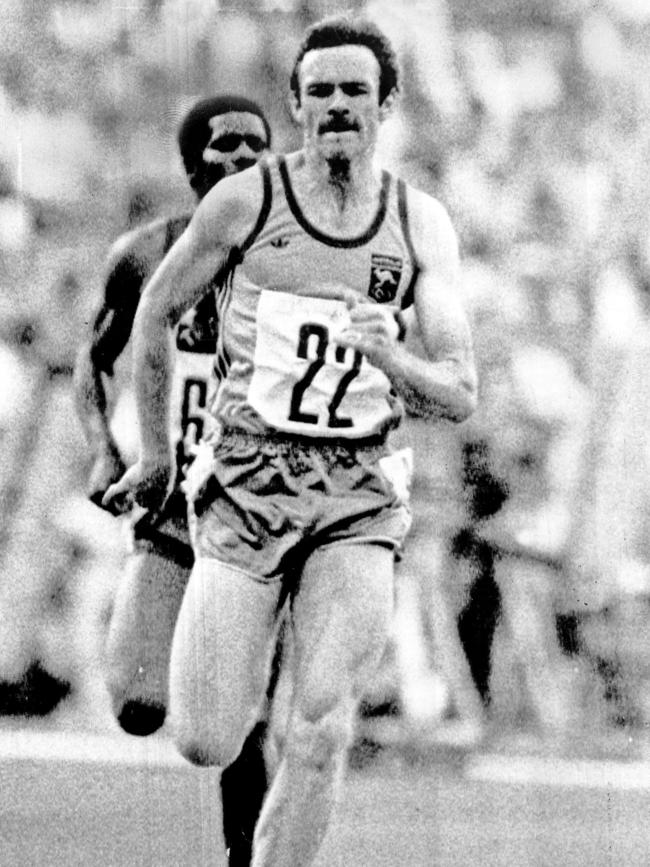
But he admits that he would have been “bitterly disappointed” had the AOF decided not to go to Moscow.
Mitchell had hoped for a win and was disappointed when he was unable to run down Russian Viktor Markin, finishing second by two metres.
The official record of the race notes that Markin, who won in 44.60 seconds, ahead of Mitchell’s 44.84s, was an “unheralded Siberian” who entered the race as a 25-1 outsider and had significantly improved his time from 47.20s in 1979 and a pre-Games best of 45.33s.
Mitchell remembers his amazement when Markin came out of the post-Games drug testing within five minutes while the others took much longer to deliver their samples.
“Five of the eight athletes were drug tested and the winner was out in five minutes,” he said.
To this day, Mitchell stills feels his disappointment at not winning in Moscow, but he has one great memory of those Games.
He had befriended Cuban Alberto Juantorena who won gold in the event in Montreal in 1976.
Juantorena had worn a red beret when he led the Cubans at the Moscow opening ceremony.
As the athletes came together in the marshalling room just before the 400m final, they met again.
Mitchell temporarily stepped out of the room to limber up. Coming back inside, he reached into his bag for his spikes and saw Juanorena’s red beret inside.
“I value the beret more than my medal. It came from the best athlete I ever raced against It came with pure respect,” he said.


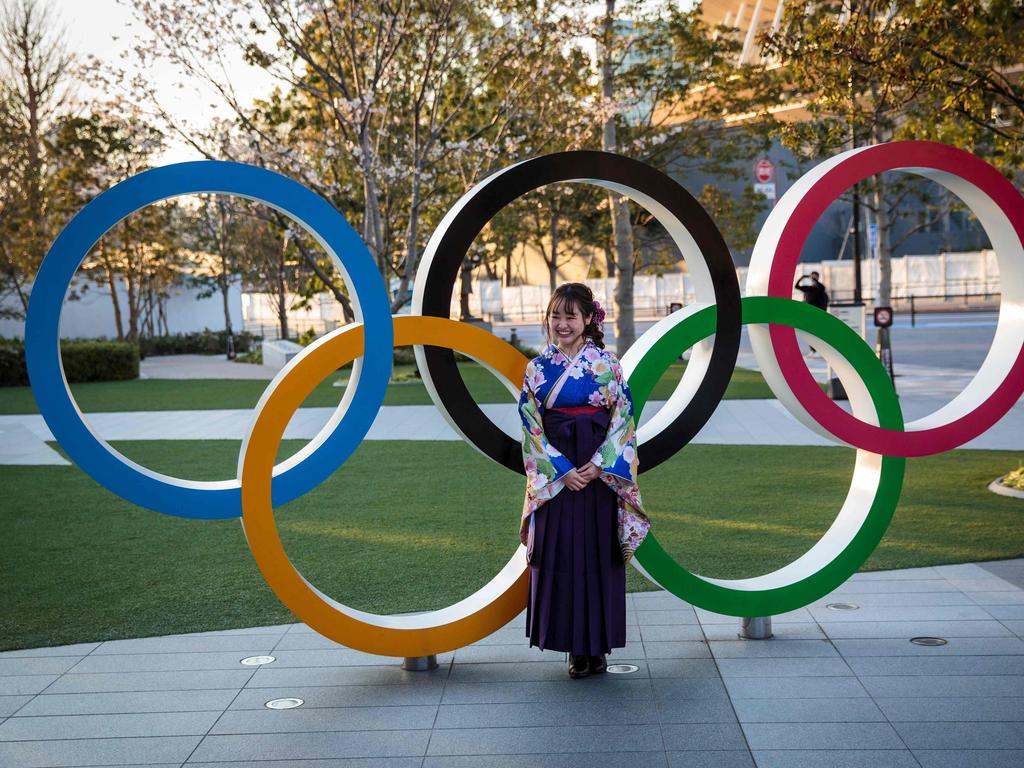



To join the conversation, please log in. Don't have an account? Register
Join the conversation, you are commenting as Logout